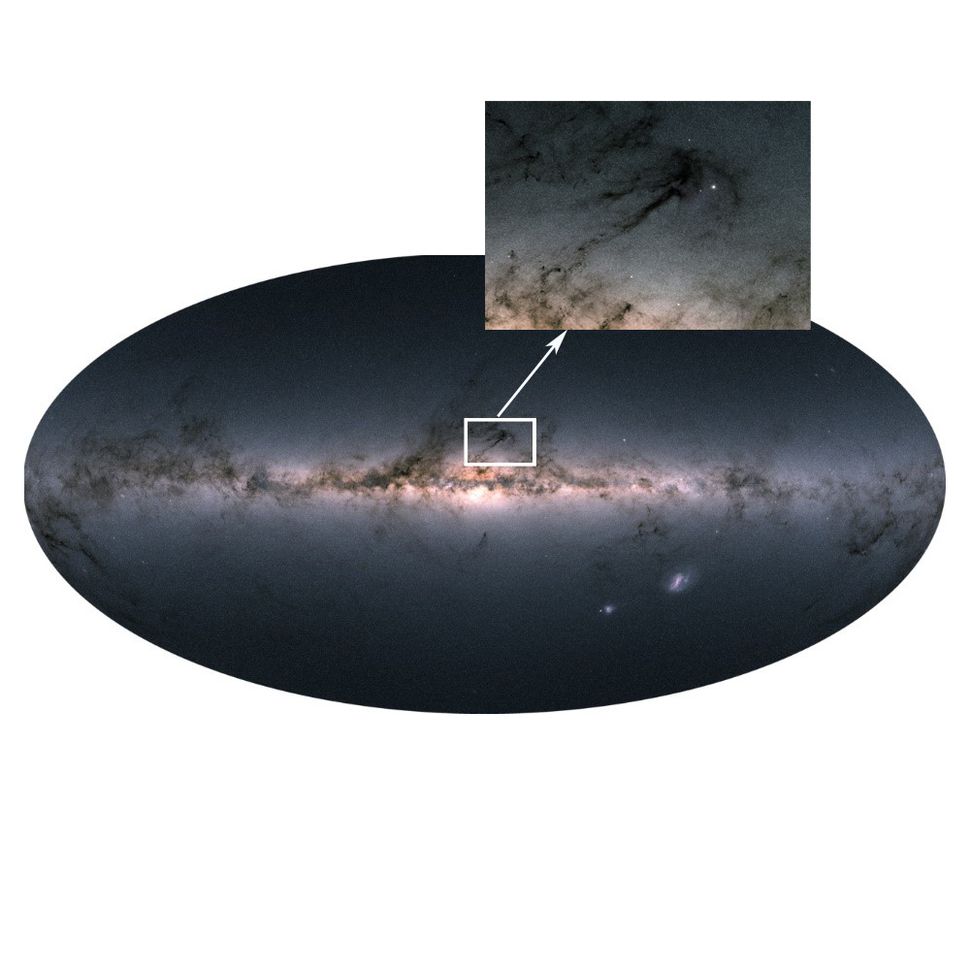Science
Related: About this forumGalaxies Collide! Burst of Star Formation in Milky Way Likely Came from Cosmic Crash
By Elizabeth Howell 16 hours ago

The Gaia satellite observed this portion of the Milky Way, called Rho Ophiuchi. The spacecraft measured the region continuously for 22 months to pinpoint the stars' locations and velocities.(Image: © ESA/Gaia/DPAC, CC BY-SA 3.0 IGO)
A galactic merger in our Milky Way galaxy likely produced a star "baby boom" billions of years ago, according to new research.
Knowledge about this burst of star formation comes courtesy of the European Space Agency's Gaia satellite, which monitors the positions and velocities of stars throughout our galaxy.
The young Milky Way would have had a lot of gas available to it, but the supply diminished over time as stars formed and used up the available material. What the new research shows, however, is that the Milky Way had a steady decline in star formation during its first 4 billion years, before a burst in star formation took place.
This means that a new supply of gas must have come in, and the study's researchers suggested that supply came from the Milky Way's merger with a satellite galaxy. A merger would also explain some of the variation in star ages, masses and distances that Gaia observed, the researchers said in a statement released May 8. Additionally, it's well-known that the Milky Way is a product of past galactic mergers, and that it's on its way to colliding with the Andromeda galaxy in a few billion years, so the results match up with other scientific work on our home galaxy.
More:
https://www.space.com/news/galaxies-collide-burst-of-star-formation-in-milky-way-likely-came-from-cosmic-crash?utm_source=notification
PoindexterOglethorpe
(28,485 posts)it is quite clear that Milky Way has already engulfed other, smaller galaxies. And there are one or two that it's in the process of taking over.
Eventually all of the galaxies in our local cluster will merge, forming one incredibly enormous galaxy. By the time that happens, the expansion of the Universe will be such that the light from other galaxies, not part of this future giant one, will no longer reach us. The background radiation from the Big Bang will no longer be detectable. Astronomers in that distant future will have no way of knowing how old or how big the Universe is, and will be unable to see anything beyond this one galaxy. That's something like 50 billion years in the future, if I recall correctly what he's told me.
Judi Lynn
(164,067 posts)It is something which will be with some of us for a while...
Thank you, Poindexter Oglethorpe!
PoindexterOglethorpe
(28,485 posts)I frequently call him up with questions of astronomy or cosmology and he's wonderful at answering them. I like to say I have never once heard him roll his eyes at me, even though I'm known to ask the same question countless times.
Here's one of the most interesting things I learned from him.
As you already know, Milky Way, approximately 300 billion stars, and Andromeda, approximately one trillion stars, are on a collision course. I once asked My Son the Astronomer about how many stars would actually crash into each other. He said, "Well, we're not entirely certain, but no more than ten." That tells you more than anything else just how vast interstellar distances actually are.
When it happens, many more stars will interact gravitationally, but the number of actual star collisions will be infinitesimally small, compared to the combined number of stars.
